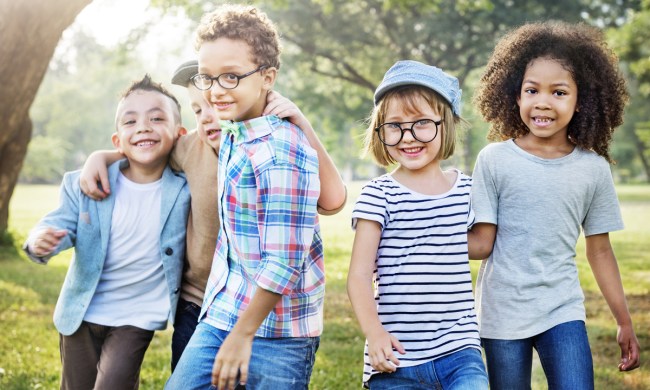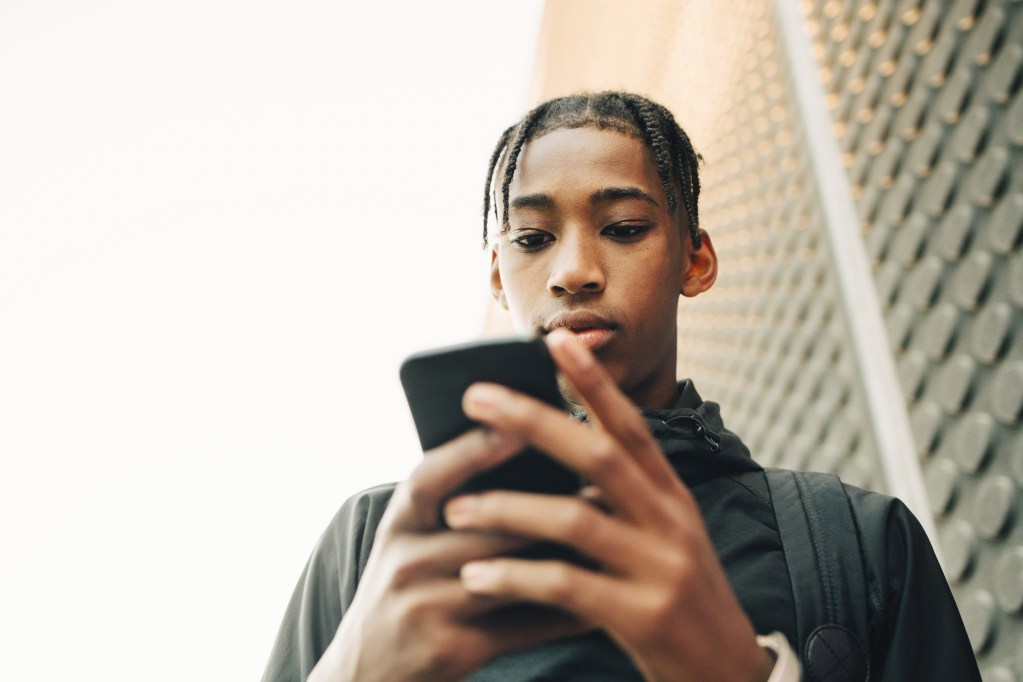
One of the most pressing dilemmas facing many parents today is, what age should they let their kids use Snapchat, or any other form of social media, for that matter. Although it’s been around for a few years, many parents wonder if Snapchat is safe for kids. It seems that kids are using these social media messaging apps younger and younger. Social media has become a huge part of all our lives, but it can also be difficult to navigate safely.
Snapchat is a popular mobile app that allows the user to send snaps — pictures, text, or video — to another user. The allure of Snapchat is that these messages are only available for a limited time and then they disappear. Snapchat has evolved over the years to include stories and a discovery area that is basically a newsfeed, but it’s still a way for kids to message each other privately. Because these conversations are deleted after a short period of time, is Snapchat safe for kids?
Many parents struggle with the safety of this app for this reason. Parents are the best judge of what their child is ready for, but many experts have weighed in and given their professional advice.
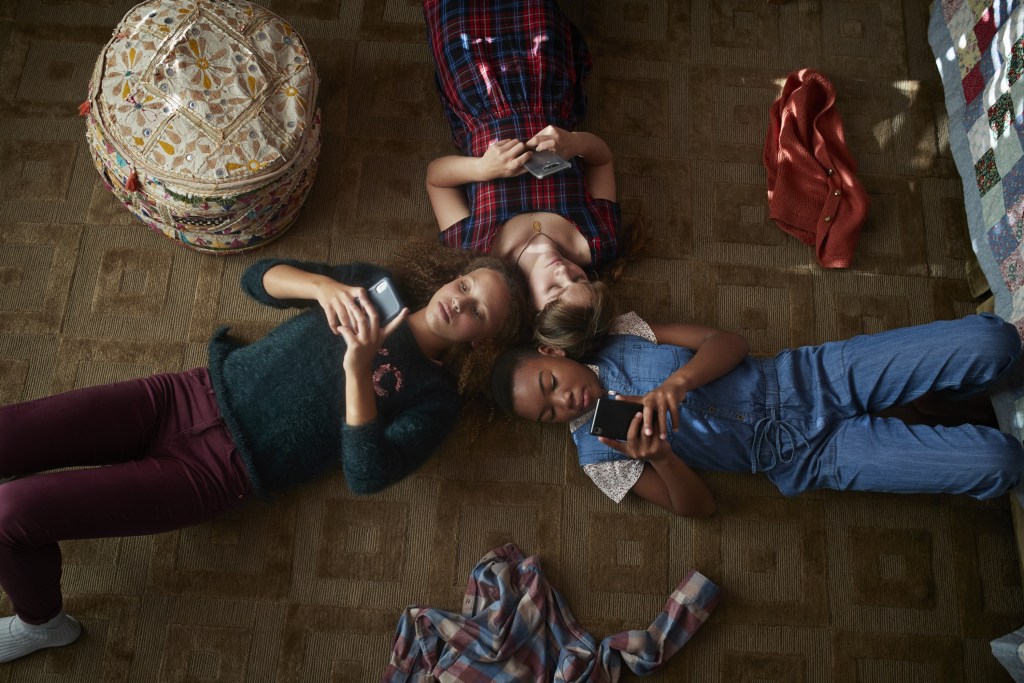
Is Snapchat a child-friendly app?
Snapchat, like many social media apps, does list an age requirement in its terms of service stating that no one younger than 13 years old should have an account. Statistics show that over 290 million people use Snapchat daily, and a lot of them are tweens and teens, despite the app’s age limit. In fact, a recent study showed that 82% of U.S. teens use Snapchat at least once a month while 36% say it is their favorite social media platform. This was before the TikTok boom, but it still stands to reason that many kids are still using Snapchat.
While Snapchat certainly allows kids to socialize with their peers and remain connected with friends — something that became incredibly important during the coronavirus pandemic when kids were literally isolated from their peers — it can also pose some security risks. Joy Altimare, chief engagement and brand officer of EHE Health, explained to Parents that the app can be both positive and negative for kids. “While it can be pure, innocent fun for you and your children, without proper supervision, it can lead to dire results,” she said.
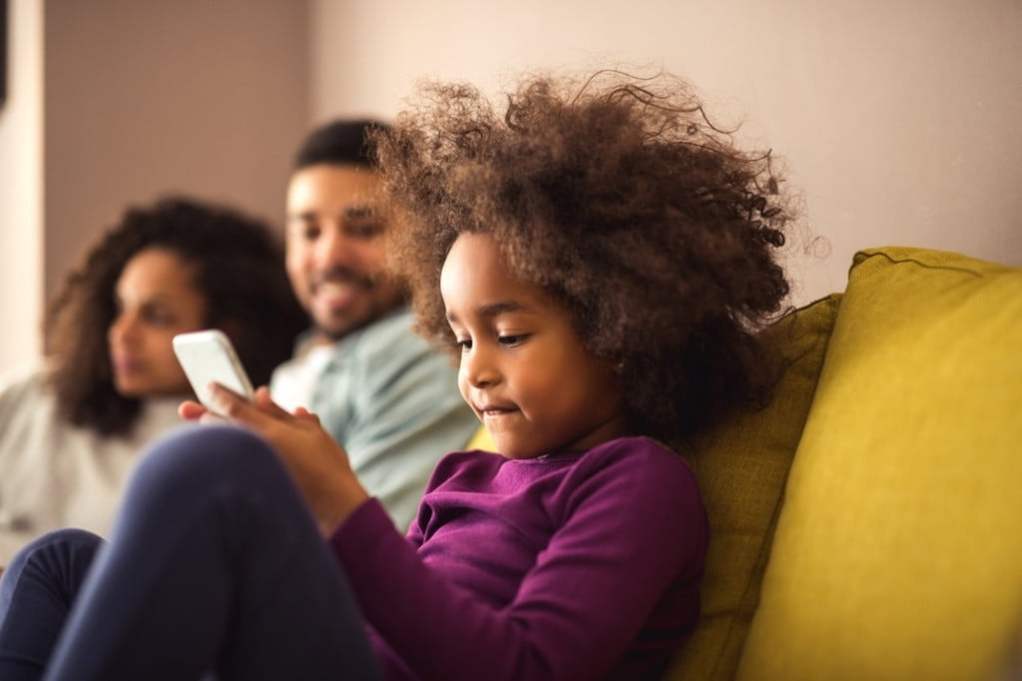
Can Snapchat be monitored by parents?
Unfortunately, Snapchat can’t be monitored in the same way other social media apps like Instagram can be because there is no ‘feed’ that you can scroll through. Snapchat does have some parental controls built in, like allowing you to set your child’s account to ‘private’ and applying different filters that will determine the content they will see, but that’s it. There are some third-party apps, many outlined by Parental Control Now, that you can install on your child’s phone that will allow you to monitor what your child is sending and receiving on Snapchat.

What can parents do if their child asks for Snapchat?
Angela Karanja, an adolescent psychologist and founder of Raising Remarkable Teenagers tells us “It’s important that parents take charge of the gadgets and monitor what their kids are doing and watching whilst still promoting, introducing, enabling, and allowing freedom.” She says there’s a line that parents must draw when it comes to allowing their kids on social media. “Parents don’t necessarily have to refuse them to go on these platforms, but they can begin to walk alongside their kids, letting the kid know that parents are supportive of their kids’ independence as well as available to guide and safeguard them. ”

What are the dangers of Snapchat?
Like any form of social media, Snapchat does pose some dangers to teens, including online bullying, exposure to mature content, and teens feeling the constant need to be on their phones. Common Sense Media points out that since it’s so easy to add “friends” on Snapchat, there is the possibility that your child may be sharing content with strangers and recommends that Snapchat is safe for kids aged 16 and up. They also note that “depending on your settings, the app can collect a ton of data about your habits in, and outside of, the app. Snapchat also works with a lot of third parties that they share your data with.”
They also suggest taking the time to sit with your kids and discuss their online habits as well as helping them configure their settings in the app to ensure their safety. “Sit down with your kid and together go into the app’s settings (the little gear icon next to your profile image). Scroll down to “Who Can…” This is where you can control important safety features, such as who can see your location and who can view your story. This is a perfect time to talk to your kid about using their Snapchat account safely and responsibly,” they suggest.
Karanja echoes this advice, suggesting that parents take the time to review their child’s Snapchat settings with them before allowing them to use the app. “Cooperation and communication with your kid at this age are very important because when they feel safe with you, they are more likely to let you in on what they are doing,” she notes. “When your kid first gets Snapchat, help them adjust the privacy settings and put appropriate restrictions in place and discuss with them why. Restrict bits such as visibility, who they share content with, who has access to them, and this is to avoid being exposed to illicit material and becoming vulnerable to strangers.”
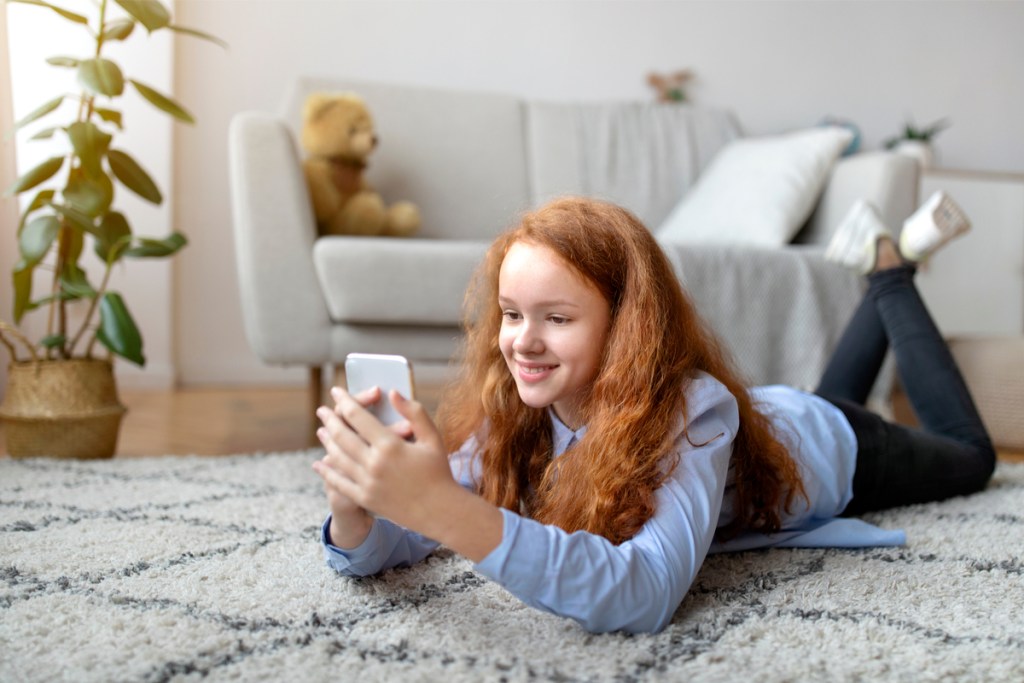
The benefits of social media
We are all aware of the risks that come with letting kids have their own Snapchat and social media accounts, but these apps aren’t all bad. There are some benefits your child may experience once they join the world of social media, which may help convince you to let your child have Snapchat.
“Social media allows teenagers to join communities where people are able to be creative … and verify others’ creativity,” therapist Octavia Sykes told USA Today. A 2022 survey by Pew Research Center asked teens how social media positively impacted their lives. Of the teens surveyed, 80% said that social media lets them feel more connected to their friends, while 71% said it allows them to showcase their creativity, and 67% said they feel support from their social community. “A smaller share — though still a majority — say the same for feeling more accepted.”
Parents know their children the best and know if they are mature enough to handle certain social media apps. Sitting down with your child and helping them set appropriate boundaries online while also educating them about potential dangers is a great way to ensure your child safely uses social media.

